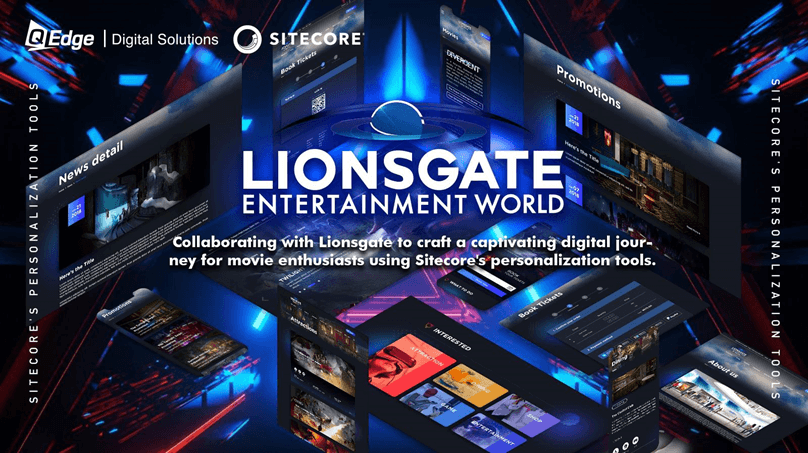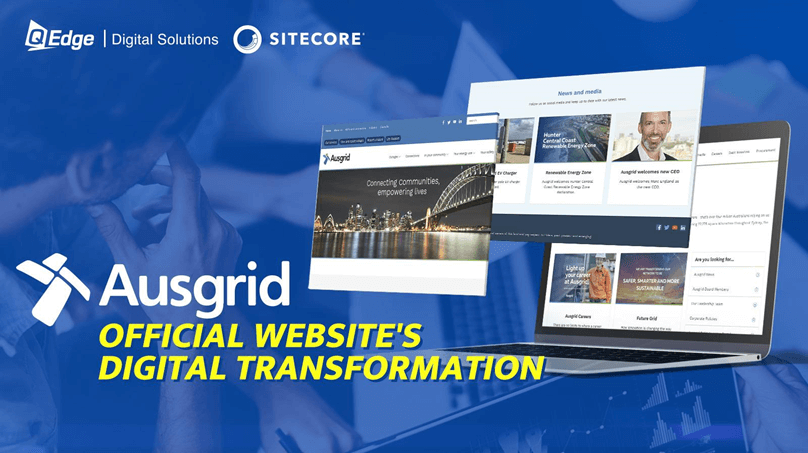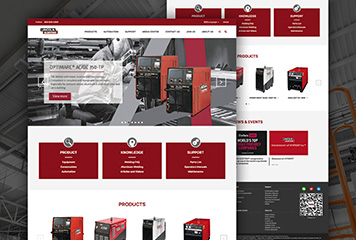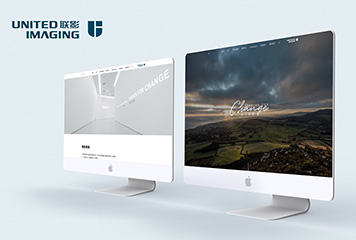How to Build a Website Like Airbnb? With over 6 million listings worldwide, Airbnb has become one of the largest and most successful online marketplace platforms, connecting travelers with unique places to stay. Airbnb's impressive growth shows the immense demand for peer-to-peer accommodation booking services.
If you're considering building your own website like Airbnb, QEdge Digital Solutions has the expertise to make it happen.

In this comprehensive guide, we'll walk through the key steps and considerations for developing an Airbnb-style rental marketplace, with insights from real-world examples.
Understand Airbnb’s Winning Business Model
The first critical step is analyzing and understanding the key elements of Airbnb's winning marketplace business model. What exactly has made them so successful?
Airbnb operates as a two-sided peer-to-peer marketplace, seamlessly connecting hosts who have space to rent with travelers looking for accommodations. By effectively matching supply and demand, facilitating frictionless transactions, and continually improving the user experience, Airbnb has built one of the world's most valuable hospitality marketplaces.
Some of the core aspects of Airbnb's business model that you should pay close attention to:
- Bringing together two distinct user groups: hosts on one side who have properties to list, and travelers on the other side looking for unique places to stay.
- Allowing hosts to easily list and manage their properties. User-friendly tools for listings, pricing, availability calendars, booking management, etc.
- Providing travelers a large inventory of special, one-of-a-kind places to stay, unlike traditional hotels. Unique benefits like amenities, location, personality, and price.
- Facilitating seamless and secure booking and payment transactions between the hosts and guests. Integrated messaging for communications.
- Generating revenue by charging service fees to both parties. Hosts typically pay 3% per booking transaction, while travelers pay between 6-12% as a guest services fee.
- Building trust and reputation through verified IDs, reviews, star ratings, etc. This gives users confidence in the platform.
- Offering 24/7 customer support and protection via their Host Guarantee program. This provides assistance and coverage for issues like damages.
Essentially, Airbnb provides the digital marketplace infrastructure to efficiently connect hosts and guests, while taking care of payments, support, and security. This solves major pain points for both parties and creates a win-win value proposition. Replicating this structure is key for any Airbnb competitor.
Research Your Target Niche Focus
While Airbnb covers a wide spectrum of accommodation types from apartments to treehouses, it can be beneficial to focus your rental marketplace on a tighter niche. Catering to a niche allows you to directly speak to the needs of hosts and travelers in that space.
Some potential niche ideas to consider for an Airbnb-style platform:
- Vacation rentals - Focus solely on beach houses, cabins, condos, and other short-term vacation accommodation. Travelers looking to rent a special place for a week or weekend getaway are a prime niche.
- Unique stays - Specialize in unique properties like houseboats, RVs, yurts, treehouses, and other one-of-a-kind stays that travelers won't find elsewhere. Emphasize personality, amenities, and location.
- Business/corporate housing rentals - Corporate travelers often need flexible furnished housing for 1-3 month work assignments. Providing business-friendly amenities could attract hosts with vacant properties.
- Event space rentals - Helping hosts list venues, party rooms, conference halls, theaters, and other event spaces for gatherings, corporate events, weddings, etc. Event planners are the target customers.
- Parking space rentals - In crowded cities, hosts can rent out parking spots, garages, and driveways to local commuters on an hourly or monthly basis.
- Storage unit rentals - Helping hosts rent extra storage in basements, attics, barns, etc. to people needing more space.
Targeting a specific niche allows you to tailor the platform experience to meet the needs of hosts and travelers in that market. But focus narrowly at first - a specialized niche site has more opportunity to dominate its territory rather than directly competing with massive general marketplaces like Airbnb.
Build an MVP with Just the Core Features
Once your niche is defined, resist the temptation to build out every feature under the sun right away. Established platforms like Airbnb offer dozens of features, but they evolved over many years after launching their core experience.
Instead, focus on building an MVP (minimum viable product) that includes just the "must-have" features to deliver core value to your users.
Some of the essential features to include in an Airbnb-style rental marketplace MVP:
- User accounts - Allow hosts and travelers to easily sign up/login and manage their account details.
- Detailed user profiles - Let hosts and travelers build out their identities with photos, bios, social connections, verifications, etc.
- Property listings - Provide an intuitive interface for hosts to create and manage listings showcasing their properties or spaces.
- Search/browse - Allow travelers to search and filter listings by location, date, price, property types, amenities, etc.
- Booking/reservations - Enable travelers to select dates and book listings, with tools for hosts to manage requests.
- Messaging - Facilitate communication between hosts and travelers to coordinate arrival times, ask questions, etc.
- Payments - Seamlessly process rental fees and security deposits between guests and hosts.
- Reviews and ratings - Let guests and hosts review each other to build up reputation and trust.
Launching with a well-executed MVP allows you to release early, gain real user feedback, and rapidly iterate without massive upfront development costs. Additional features like custom pricing tools, photography services, and more can come later. Focus on nailing the core user experience first.
Choose the Optimal Technology Stack
Selecting the right technology stack and tools is crucial when building an online marketplace platform. The tech foundations establish the critical backbone that impacts scalability, performance, security, and long-term maintenance.
Here are some of the optimal technologies QEdge Digital Solutions would leverage to build a smooth, robust Airbnb-style marketplace:
- Ruby on Rails - An open source Model-View-Controller framework providing structure for web apps. Ideal for rapidly building scalable, maintainable marketplaces.
- React.js - A JavaScript library for building interactive, complex user interfaces that update dynamically. Excellent for smooth UI.
- PostgreSQL - A powerful, secure open source relational database system well suited for marketplaces.
- AWS (Amazon Web Services) - Cloud hosting on Amazon's infrastructure allows seamless scaling of storage and servers.
- Docker - Application containerization facilitates managing microservices and smooth deployment.
- Redis - In-memory data store delivers blazing fast query response times for a snappy user experience.
This combination provides a modern, robust foundation tailored for the demands of an online marketplace. QEdge Digital Solutions has deep expertise across this technology stack and constantly evaluates new tools to incorporate into clients' platforms. The right technical architecture saves tremendous time and headaches down the road.
Craft an Intuitive, Appealing Design
While a solid technical foundation is critical, don't underestimate the importance of design in building a successful marketplace platform. An intuitive, well-crafted design has a major impact on user trust, engagement, and conversions.
Some key design principles and features to incorporate:
- Simple, seamless navigation - Users should easily find what they need with clear menus and intuitive flows. Eliminate friction.
- Prominent search bars - Allow travelers to easily dive into searching for their ideal stay. Predictive results improve the experience.
- Dynamic filtering - Let travelers filter by property type, price, bedrooms, amenities, dates, etc. to precisely narrow options.
- Photographic property galleries - Highlight properties with eye-catching, high-res photo galleries to capture interest.
- Engaging listing descriptions - Hosts should tell the story of their property to get travelers excited about the experience.
- Clear calls-to-action - Use bright buttons for booking or contacting the host to drive conversions.
- Visually engaging maps - Let travelers visually browse listings by location. Integrate idyllic area photos for browsing.
- Responsiveness - Ensure the site looks fantastic on all devices - phones, tablets, laptops, and desktops.
- Consistent branding - Build trust and recognition by using consistent UI patterns, logos, fonts, and styles across the platform.
QEdge Digital Solutions offers full-service UI/UX design to craft beautiful, highly converting digital platforms tailored to engage your niche users.

Provide Excellent Community Support
Running an online marketplace comes with unique support requirements - you essentially need to provide helpful customer service to both hosts and travelers. Providing prompt, thorough support builds loyalty and keeps your community happy.
Some key features to provide excellent community support:
- 24/7 support center - Create an online knowledge base with FAQs, tutorials, documentation, and resources to solve common user issues.
- Live chat/email support - Have support staff ready to promptly answer questions and handle issues via chat and email at all hours.
- Quick response times - Set benchmarks for responding to support tickets within a few hours to show users you care.
- Host management tools - Provide hosts with intuitive tools and dashboards to easily manage listings, pricing, bookings, calendar, messages, etc.
- Automated notifications - Send automatic confirmations, reminders, etc. so users know booking status.
- Social media channels - Maintain active social profiles for additional community engagement.
Delivering above-and-beyond support builds lasting loyalty and keeps both sides of your marketplace platform happy.
Consider Complementary Value-Add Services
In addition to the core marketplace experience, providing complementary services can further cater to the needs of your niche users, add value, and even present additional revenue streams.
Some potential value-add services to consider:
- In-site messaging - Allow hosts and guests to message each other directly to coordinate arrival times, ask questions, etc.
- Identity/background checks - Run optional identity checks on both parties to add trust and security, potentially for an added fee.
- Professional photography - Offer professional photography packages to help hosts showcase properties attractively in listings.
- Pricing tools - Provide hosts smart pricing and yield management tools to optimize pricing and occupancy.
- Local recommendations - Offer guests curated recommendations for great local attractions, dining, entertainment based on their destination.
- Concierge service - Provide a human concierge to help guests book restaurants, activities, transportation, etc.
- Home cleaning/maintenance - Connect hosts with services to prepare properties between rentals.
Brainstorm complementary offerings that cater perfectly to your niche users. The right mix adds value beyond just listings and bookings.
Launching a Successful Marketplace Takes Careful Planning
Executing a new peer-to-peer online marketplace involves quite a few moving parts. But having an experienced digital partner like QEdge Digital Solutions on your team vastly simplifies the process and sets you up for success.
Our full-service approach includes:
- Designing an intuitive, visually appealing platform focused on seamless user experience. Our designers ensure high conversion rates.
- Building on robust, scalable architecture using proven technologies like Ruby on Rails, React, and AWS - ready to scale.
- Launching quickly with an MVP approach to validate the model before building every feature.
- Driving organic platform growth by utilizing proven digital marketing strategies.
- Providing ongoing optimization, maintenance, and support to keep your marketplace thriving.
- Adjusting course and iterating based on data insights and user feedback.
If you're ready to turn your idea into the next thriving Airbnb-style marketplace, the experts at QEdge Digital Solutions are ready to partner with you make it a reality. Our team has successfully built many online marketplaces and platforms for startups and enterprises worldwide. We integrate seamless user experience, performance, security, and scalability into every project.
Get in touch with us today to discuss bringing your peer-to-peer marketplace idea to life!













